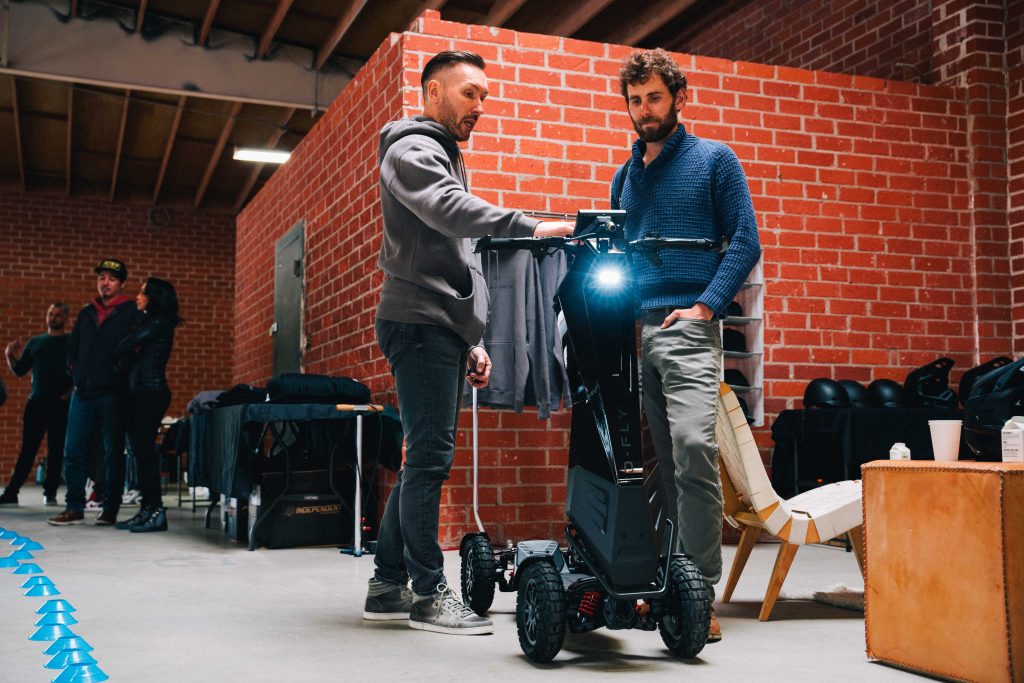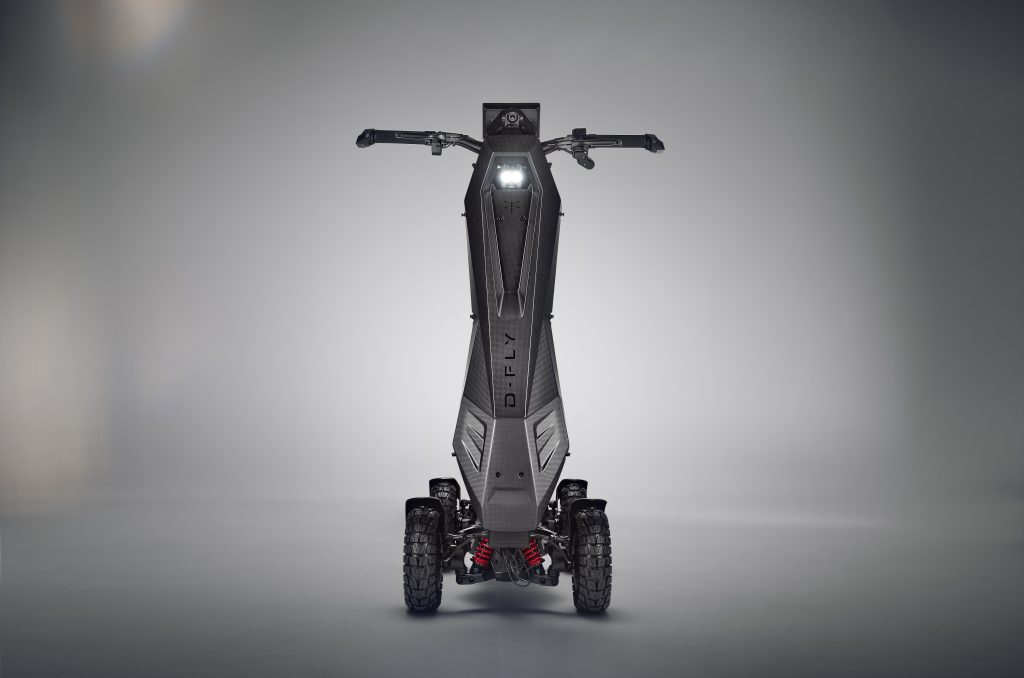What really drives people to launch new mobility businesses? In a new series, Zag takes an in-depth look at the backstories of Founders to understand the origins of their inspiration.
Jez Williman has always had the bug for adrenaline and endurance sports.
If he wasn’t competing in the Tri Star Iron Man series he set up, or kitesurfing and wakeboarding, he was down in the south of France training six days a week with the likes of Paula Radcliffe at an elite sport level.
But in 2017, while out on a 120 km ride in Monaco, he noticed a niggling in his knees.
By the time he was home, they had swelled to the size of pineapples.
His doctor said he had ripped all the cartilages off his knees and would need an immediate operation.
“So literally within 48 hours, I had operations on both my knees and that put me in a wheelchair,” he says. “I did all the rehab and got on crutches but they were all scratching their heads as I wasn’t healing.”
Determined not to lose faith that the sporting part of his life might be over, Jez began designing a more accessible personal transport genre that brought together all the excitement of wakeboarding, kite surfing and skateboarding into one street vehicle.
Now, after five years in the making, his company D-Fly will this month begin mass producing the world’s first Sport Scooter.

Early years
Jez’s cycling injury was not the first disability he had to contend with.
“I’m disabled, I just don’t wear a badge,” says Williman. “And that’s simply because I’m acutely dyslexic. So in my nearly six decades on this planet, I’ve actually never read a book. That’s not to say that I can’t read, because I can, but it’s just incredibly taxing on my mind, so it puts me to sleep.”
At 16, struggling with exams, Jez dropped out of school.
“That was really tough as all my family were in higher education, you know, head teachers or professors. My sister was a straight A student and I was a straight D student.
“But when I read a question in an exam, I couldn’t remember the question I’d just read so I would answer another question because it just got completely confused in my mind.”
Jez decided to take up an engineering apprenticeship in the automotive industry instead, working for the world’s largest car safety manufacturer, Autoliv.
“When I started doing practical tasks with my hands, it was like muscle memory, I could just remember it.”
Tensator & crowd control
At Autoliv, Jez rose through the ranks to lead a division, and one of the companies under his management was a startup called Tensator specialising in queue management solutions.
“It was basically a stanchion with a seat belt on the top that makes you form a queue when you go through airports, banks and so on,” says Williman.
The solution was designed in the late 60s but had not yet evolved into a global product. “That’s why I bought the company because I could see the potential. We introduced a host of new products – things like in-queue merchandising, checkout number three please, and all that jazz.
“We were at three and a half million in revenue at the start, and 10 years later our team had turned it into a global £150m revenue company, so I was super proud of that.”
Before selling the business, Jez wanted to ensure its long-term success and so spent months preparing a five-year innovation pipeline. It was these designing and engineering skills that made him so highly sought after, but Williman decided to turn down the job offers. “When you do something for someone else, it’s never the same as doing something for yourself with heart and soul, so that’s when I really indulged my passion for sporting endeavour.”
His lightbulb moment
After Jez’s cycling injury in 2017, he was living in London with his family trying to get around on crutches.
“My hands were red raw being on crutches but my legs were in calipers so I couldn’t bend them to get in a car,” says Williman.
Needing another way to get around, the only solution he could find was a push scooter.
“I probably went through 15 different brands but having come out of a wheelchair, what struck me was a) how dangerous they were and b) what a passive experience they gave.
“So I remember one day literally getting a piece of paper out and sketching out a vehicle that combined everything I’d learnt from motorsport technology, kite surfing, wakeboarding. Even my queue business played a part as queuing has the same effect as being stuck in traffic. You have that anxiety and stress that I wanted to eliminate.
“It was clear that the vehicle had to feel engaged, sporty, it had to be a workout and most importantly it had to be fun, so that riders were left with that ear to ear smile.”
A new category of sport
Fast forward to the present day and the D-Fly team have designed the world’s first Sport Scooter dubbed Dragonfly.
“Dragonfly has many of these motorsport grade features that are on all full-sized vehicles, but miniaturised,” says Williman.
With almost 500 components and built for any terrain, the Sport Scooter features include four wheels for stability, four-wheel steering, reverse gears, an anti-lock braking system (ABS), hydraulic damped adjustable sprung suspension and a unique, patented 3D full-tilt steering system, drawing inspiration from the race track.

“The steering column at the front, doesn’t just lean, you can lean and twist and that controls your front wheel steering. Then you can push in with heel and toe to activate the rear steering and push more into that to give you a super tight carving experience. If you ride the vehicle for any length of time, you feel like you’ve had a proper workout as it really engages your core.”
With mass production starting this month, D-Fly’s first step is to satisfy its initial 1,000 pre-orders. Then it will be producing about 200 units a week.
As things start to ramp up, this comes at a good time for Jez.
Six months ago, it transpired that he has an autoimmune disease making it difficult for his body to fight infections.
“That’s why I wasn’t ever able to heal,” he says. Now with the right medication, he has been able to walk again.
“It has been a long road to recovery but I feel really good now and ready to reveal the evolution of this completely new genre that we’re trying to carve out. Our philosophy is giving people a real alternative that is a healthy, safe, engaged, sporty experience, in the hope that we can change people’s hearts and minds from full size vehicles to the Dragonfly.”





